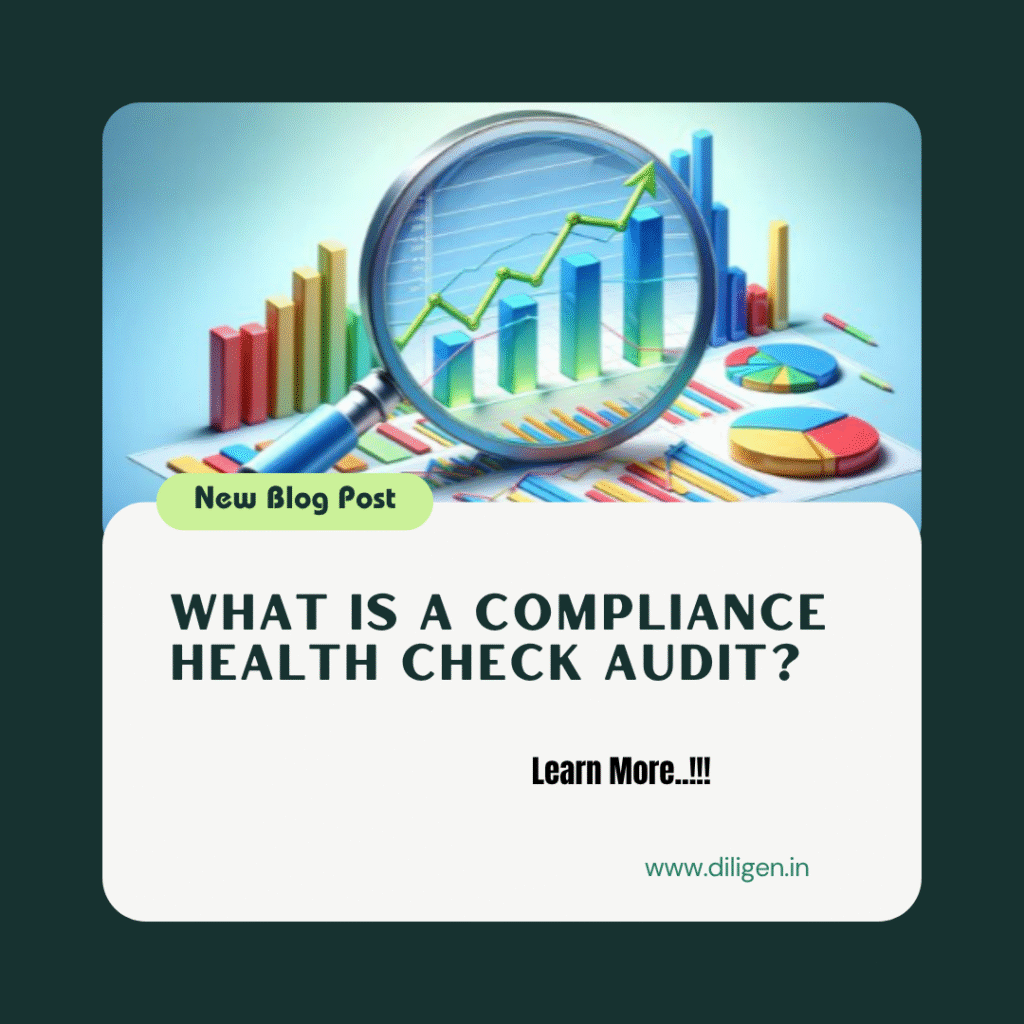What is a Compliance Health Check Audit? Benefits, Process & Importance
Introduction:
A Compliance Health Check Audit is a proactive assessment of your business’s adherence to statutory, regulatory, and internal policies. In today’s highly regulated business landscape, ensuring compliance is not just a best practice — it’s a necessity. Therefore, companies of all sizes must routinely check if they are meeting legal obligations across financial, HR, tax, environmental, and industry-specific areas.
But what does a compliance audit involve? Why is it essential? And how can it protect your business? Let’s explore these questions in detail.
🔍 Why is a Compliance Health Check Audit Important?
First and foremost, failing to comply with laws and regulations can result in penalties, legal action, or even operational shutdowns. Additionally, poor compliance can damage your reputation and reduce stakeholder trust.
A compliance health check audit:
Helps you identify non-compliance risks before regulatory inspections.
Ensures you are always audit-ready.
Enhances your internal control systems.
Instills confidence in clients, investors, and government bodies.
In short, this audit is like a preventive health screening — it catches issues early, before they escalate into costly problems.
🧭 What Areas Does a Compliance Audit Cover?
While the exact scope may vary based on industry and company size, a typical compliance audit reviews the following areas:
1. Statutory Compliance
Companies Act filings (ROC/MCA)
Income Tax, TDS, and GST returns
Annual returns and financial statements
2. Labour Law and HR Compliance
EPF, ESI, gratuity, and minimum wage compliance
Employment contracts and HR policies
Sexual Harassment policies (POSH Act)
3. Corporate Governance
Board meeting documentation
Shareholder resolutions
Related party transactions
4. Licensing & Regulatory Filings
FSSAI, MSME, ISO, or industry-specific licenses
Environment, health, and safety compliance
5. Data Privacy & Cybersecurity
Data handling practices under GDPR or local IT laws
Cybersecurity policies and breach response mechanisms
6. Vendor and Contractual Compliance
Vendor contracts
Payment timelines
Tax deductions and documentation
⚙️ Step-by-Step Process of a Compliance Health Check Audit
To ensure a structured and effective audit, companies generally follow this process:
Step 1: Planning & Scoping
The audit team defines the objectives, departments, and compliance areas to be reviewed.
Step 2: Documentation Review
A deep dive into records, filings, and contracts helps assess existing practices.
Step 3: Interviews and Discussions
Interacting with departmental heads and compliance officers gives real-world insights into process gaps.
Step 4: Gap Analysis
Any inconsistencies or violations are flagged, categorized, and risk-ranked.
Step 5: Reporting
A detailed report outlines:
Areas of compliance
Risky gaps or violations
Corrective and preventive actions (CAPA)
Step 6: Follow-up & Implementation
The audit doesn’t end with the report. Action plans are tracked, and support is given to close the gaps.
💡 Benefits of Conducting a Compliance Health Check Audit
Undoubtedly, this kind of audit delivers numerous advantages. Here are a few major ones:
✅ Minimizes Risk Exposure: Early detection of issues prevents legal trouble.
✅ Improves Process Efficiency: Fixing gaps streamlines operations.
✅ Boosts Stakeholder Confidence: Investors and clients prefer compliant partners.
✅ Supports Business Growth: It’s easier to scale when your compliance is clean.
✅ Ensures Business Continuity: Avoids sudden interruptions from regulatory raids or penalties.
🔐 Who Should Conduct the Audit?
Although some organizations have internal compliance teams, it’s highly recommended to hire independent experts such as:
Chartered Accountants (CAs)
Company Secretaries (CS)
Compliance consultants
Third-party audit firms
These professionals provide an unbiased and professional evaluation, backed by years of experience.
📅 When Should You Conduct a Compliance Audit?
Ideally, a compliance health check should be done at least once a year, or before:
A fundraising round
A merger or acquisition
External statutory audits
Major internal policy changes
Early audits lead to smooth operations and stress-free business inspections.
📝 Conclusion: Final Thoughts
In conclusion, a Compliance Health Check Audit is not just a safety net—it’s a strategic advantage. Staying compliant with ever-evolving laws, regulations, and internal policies ensures your business avoids penalties, improves operational transparency, and builds lasting stakeholder trust.
Rather than waiting for a government notice or regulatory breach, proactive companies are investing in regular audits to stay ahead of potential risks. From statutory filings to HR compliance and data security, this audit acts like a full-body check-up for your organization.
💼 Partner with the Experts
At Diligen Professional Solutions Pvt Ltd, we specialize in end-to-end compliance audits tailored to your business needs. Our team of experienced Chartered Accountants, Company Secretaries, and legal experts ensures that no gap goes unnoticed. Whether you’re preparing for a funding round, merger, or simply want peace of mind—Diligen is your trusted compliance partner every step of the way.





